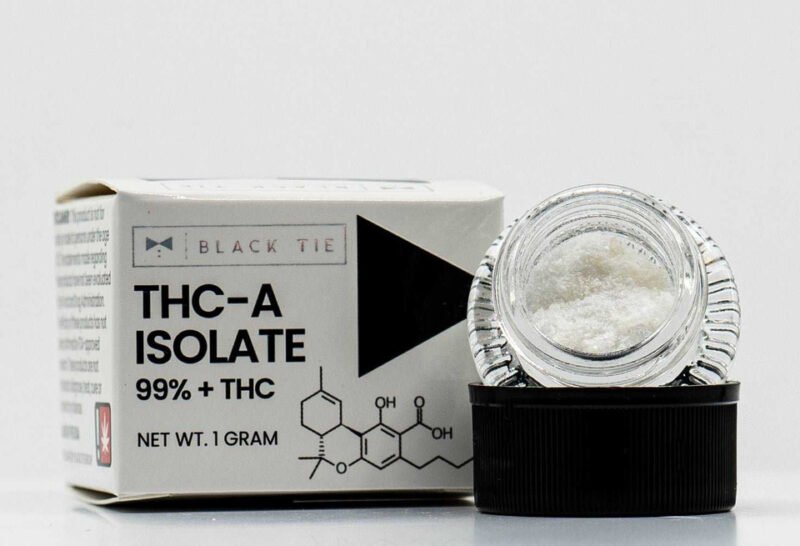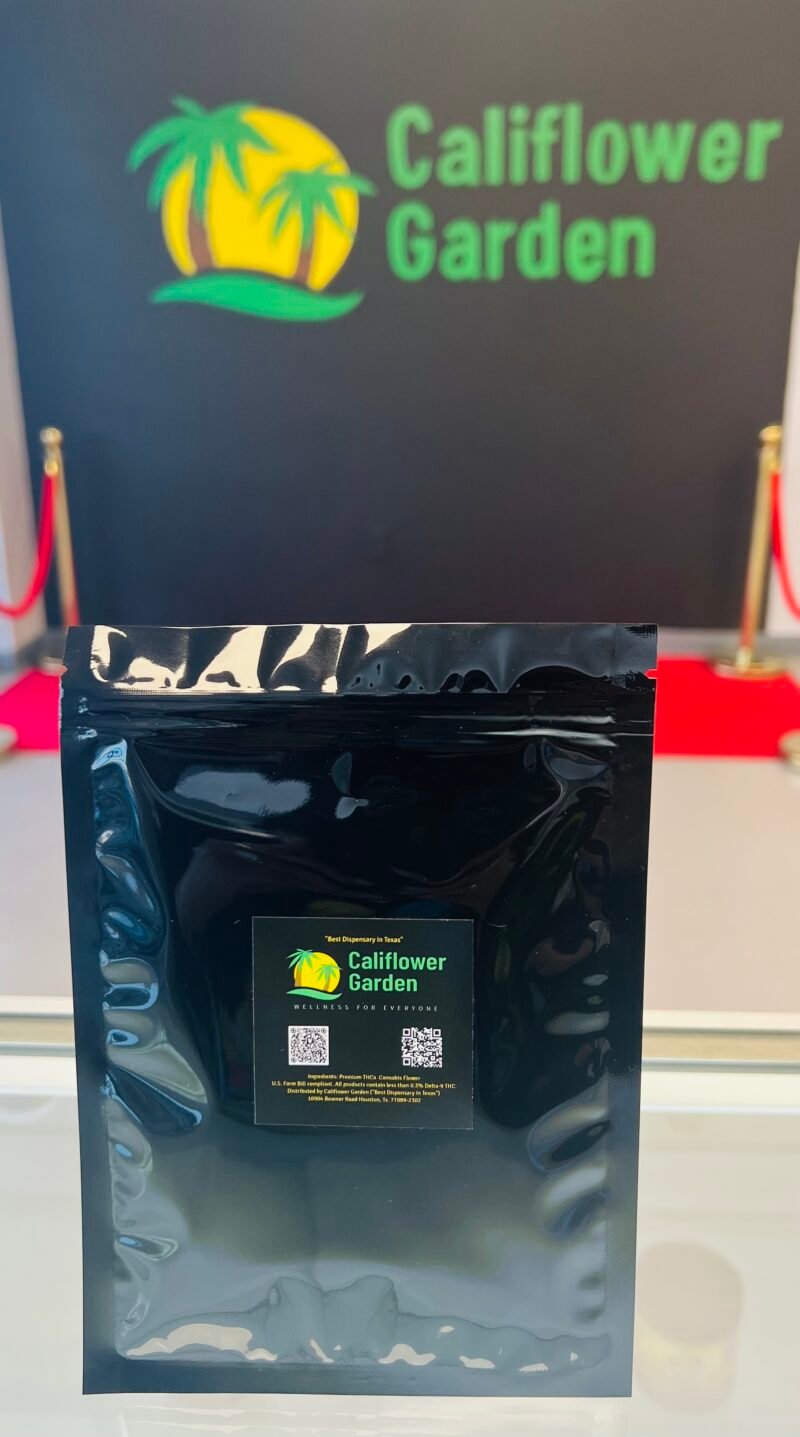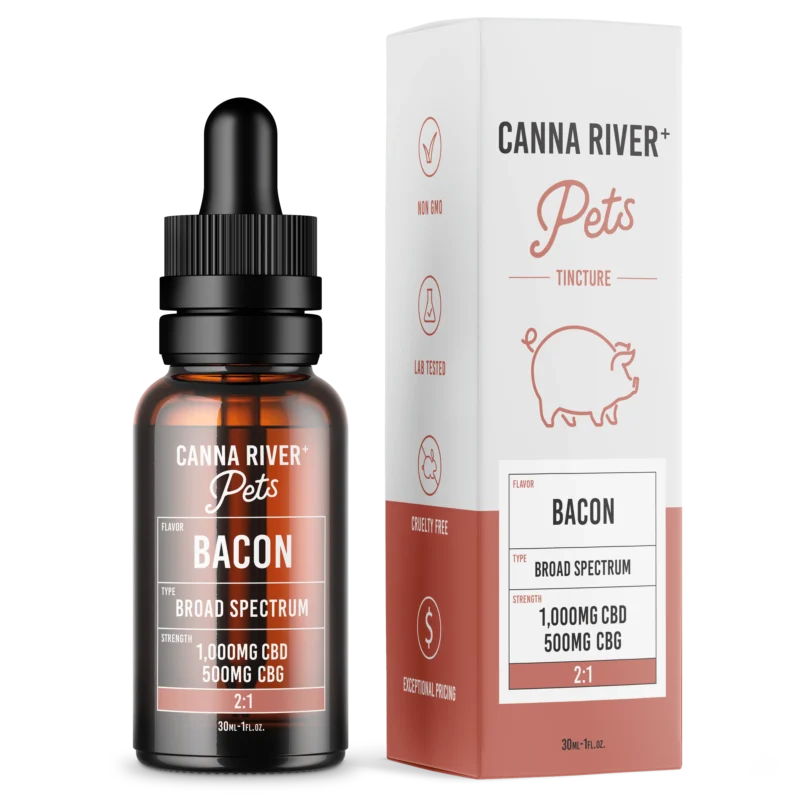Description
BRAND: CALIFLOWER GARDEN
This tincture is a top-seller and for good reason. It’s USDA Certified Organic and contains only three ingredients, with results that kick in quickly and a sense of tranquility that lasts throughout the day.
Close your eyes, and imagine snuggling under your favorite, plushest blanket on a lazy, carefree Sunday. The resulting flood of warmth, comfort, and bone-deep tranquility is bottled in our Tranquil Mint: Organic Broad Spectrum CBD Tincture.
Unlike others, our Organic Broad Spectrum CBD Tincture is truly broad spectrum. That means it contains 0.0% THC yet boasts an incredibly phytonutrient-rich profile, including minor cannabinoids (like CBC, CBN, and CBG), terpenes, and flavonoids. All of these working together promote the entourage effect—the phenomenon in which various cannabis compounds work together to enhance one another’s wellness-boosting results.
How it Works
How, exactly, does our Organic Broad Spectrum CBD Tincture work to calm your mind and soothe your body? It all comes down to its interaction with your body’s endocannabinoid system (ECS).
The ECS helps your body maintain homeostasis throughout the body. By binding to or influencing your endocannabinoid receptors, the high-grade, hemp-derived cannabinoids found in our CBD tincture can help bring your body and mind back into balance. As a result, you’ll feel calm and collected—a state you’ll appreciate at all hours, whether you’re gearing up for a new day or winding down in preparation for the next.
Our Formula
Our ingredient list ensures you can feel
really good about what you’re putting in your body. Beyond organic broad spectrum hemp extract, you’ll only find two additional ingredients: organic olive oil (a carrier oil that enables fast-acting results) and organic peppermint essential oil (for that light, refreshing, tastebuds-delighting mint flavor).
Yes. That’s it. No preservatives, alcohol, fillers, distracting ingredients, or anything artificial—be it colors or flavors. Also, since we insist on extracting our CBD oils only from 100% organic, USA-grown hemp and using only organic ingredients, every drop of Tranquil Mint Organic Broad Spectrum CBD Tincture is free of pesticides, herbicides, or chemical fertilizers.
USDA Certified Organic & Third-Party Tested
But, of course, you shouldn’t just take our word for it. So, let’s talk proof. Tranquil Mint Organic Broad Spectrum CBD Tincture is USDA Certified Organic. In addition, as with all Joy Organics products, we subject our CBD tinctures to rigorous purity, potency, and safety tests. Twice. We do the first tests internally, in our own labs, on the raw CBD oil. Then, we ensure every batch of finished products goes through third-party lab testing at an ISO-accredited lab. Every bottle of Tranquil Mint Organic Broad Spectrum CBD Tincture comes with a QR code linking to our internal lab reports and third-party testing results so you can confirm that it’s as clean and good for you as we say.
Ready to make our CBD tincture a part of your daily wellness routine? With four strengths available, ranging from beginner-friendly 15mg per serving to high-potency 75mg per serving, you’ll enjoy the flexibility of adjusting serving sizes at your own will, in a way that suits your unique needs and lifestyle.
6 Health Benefits of CBD Oil — and a Look at Side Effects
https://cdn.jwplayer.com/previews/OFoXmZmV
Cannabis has been used to treat pain since 2900 B.CTrusted Source., with use originating in Chinese medicine. Researchers believe that components like CBD may be responsible for these effects.
The endocannabinoid system is involved in regulating functions like pain sensation. The body produces neurotransmitters called endocannabinoids that bind to cannabinoid receptors.
StudiesTrusted Source show that CBD may help reduce chronic pain by targeting endocannabinoid receptor activity, reducing inflammation, and interacting with neurotransmitters. Preclinical evidence also suggests that it may be effective
rheumatic diseases like fibromyalgia, per research from 2021Trusted Source.
SUMMARY
CBD may be effective for reducing certain types of pain associated with conditions such as fibromyalgia. Still, more research is needed to investigate its potential use in pain management.
2. Could reduce symptoms related to some mental health disorders
CBD oil has shown promise as a treatment for some mental health disorders leading many people who live with these conditions to become interested in this natural treatment approach.
A 2020 literature reviewTrusted Source on CBD and mood disorders found that multiple studies suggest CBD has properties that may help reduce symptoms of depression, anxiety, and even psychosis.
A small 2019 studyTrusted Source also found that CBD was effective in reducing PTSD-related symptoms, including nightmares, in adults.
That said, the available research has not been sufficient for doctors to recommend CBD as an actual treatment for such conditions.
SUMMARY
CBD use has been shown to improve some symptoms related to mood disorders. Researchers are currently investigating how CBD may be used in the treatment of other mental health disorders.
3. May alleviate certain cancer-related symptoms
CBD may help reduce some cancer-related symptoms and side effects related to cancer treatment, such as nausea, vomiting, and pain, according to research published in 2022Trusted Source.
However, more research is needed to determine whether CBD should be used more regularly in cancer symptom management.
SUMMARY
Though CBD may improve certain cancer-related symptoms in some people, research findings are currently mixed. More studies are needed to assess its effectiveness and safety.
4. May have neuroprotective properties
CBD may provide benefits for those with neurological disorders. A 2022 studyTrusted Source suggests that nabiximols (Sativex) spray containing both CBD and THC may help reduce pain and muscle spasticity in people living with multiple sclerosis (MS).
Research from 2017 indicated that CBD oil helped reduce seizure activity in children with Dravet syndrome, but it also caused some adverse reactions.
The Food and Drug Administration (FDA)Trusted Source has approved one CBD product, Epidiolex, for the treatment of several seizure disorders and seizures caused by tuberous sclerosis complex (TSC). TSC is a rare genetic disease that causes benign tumors to grow in the brain and other body areas.
There’s also some limited evidence that CBD may also be effectiveTrusted Source in improving the symptoms of other neurological conditions, such as:
- Parkinson’s disease
- Huntington’s disease
- autism spectrum disorder (ASD)
- motor disorders like cerebral palsy
SUMMARY
CBD may be effective for treating seizures related to several health conditions. The prescription CBD product Epidiolex has received FDA approval to treat seizures related to rare, seizure-causing conditions such as Dravet syndrome.
5. May benefit heart health
High blood pressure is linked to higher risks of several health conditions, including stroke, heart attack, and metabolic syndrome.
Research indicates that CBD may be beneficiaTrusted Sourcel for people with high blood pressure because it can influence the contractions of the heart muscle and help widen blood vessels.
For example, one study from 2020Trusted Source that included 26 healthy men found that treatment with 600 milligrams of CBD for 7 days led to significant reductions in blood pressure in the short term compared with a placebo group. However, the effect was lost after 7 days.
While these findings are encouraging, more research into the potential benefits of CBD treatment on heart health is needed.
SUMMARY
Though more human studies are needed, CBD may benefit heart health in several ways, including by reducing blood pressure and improving artery function.
6. Other potential benefits
CBD has been studied for its role in treating a number of health issues other than those outlined above.
Though more research is needed, CBD is thought to potentially provide the following health benefits:
SUMMARY
Some research suggests that CBD may help with substance misuse disorders, sleep, and certain types of cancers. However, we need more research involving humans to find out more about these potential effects.
What are the drawbacks of CBD oil?
CBD is considered generally safe, but it may causeTrusted Source adverse reactions like diarrhea, changes in appetite and weight, and fatigue in some people.
Other side effects, including abnormal liver function test results, drowsiness, sedation, and pneumonia, have been reportedTrusted Source in childhood epilepsy research.
But these effects could stem from CBD interacting with other medications, such as clobazam, as it can interactTrusted Source with various drugs. It’s always a good idea to speak with a qualified healthcare professional about the right dosing for you and your risk of experiencing side effects.
Low quality CBD products are common in the marketplace, so it’s important to choose products that have been third-party tested for quality and purity.
Learn about
SUMMARY
Although CBD is generally considered safe, it can cause adverse effects such as diarrhea and fatigue in some people. It may also interact with certain medications, causing side effects that may be harmful.
CBD oil may help ease symptoms of anxiety, neurological disorders, heart health issues, and certain types of pain, among other health conditions.
That said, while some study findings are available, more research is necessary to draw conclusions. Some studies are still ongoing.
Since the potential uses of CBD are still not entirely determined, it’s a good idea to speak with a qualified healthcare professional before trying it.
Last medically reviewed on June 30, 2023
Healthline has strict sourcing guidelines and relies on peer-reviewed studies, academic research institutions, and medical associations.
- 2 Cannibis. (2017).
https://www.ncbi.nlm.nih.gov/books/NBK425762/
- Boehnke KF, et al. (2021). Cannabidiol use for fibromyalgia: Prevalence of use and perceptions of effectiveness in a large online survey.
https://pubmed.ncbi.nlm.nih.gov/33400996/
- Chayasirisobhon S, et al. (2021). The role of cannabidiol in neurological disorders.
https://www.ncbi.nlm.nih.gov/pmc/articles/PMC8817911/
- Chesney E, et al. (2020). Adverse effects of cannabidiol: A systematic review and meta-analysis of randomized clinical trials.
https://www.ncbi.nlm.nih.gov/pmc/articles/PMC7608221/
- Darkovska-Serafimovska M, et al. (2018). Pharmacotherapeutic considerations for use of cannabinoids to relieve pain in patients with malignant diseases.
https://www.ncbi.nlm.nih.gov/pmc/articles/PMC5922297/
- Devinsky O, et al. (2017). Trial of cannabidiol for drug-resistant seizures in the dravet syndrome.
https://www.nejm.org/doi/10.1056/NEJMoa1611618?url_ver=Z39.88-2003&rfr_id=ori:rid:crossref.org&rfr_dat=cr_pub%20%200www.ncbi.nlm.nih.gov
- Elms L, et al. (2019). Cannabidiol in the treatment of post-traumatic stress disorder: A case series.
https://www.ncbi.nlm.nih.gov/pmc/articles/PMC6482919/
- FDA approves new indication for drug containing an active ingredient derived from cannabis to treat seizures in rare genetic disease [Press release]. (2018).
https://www.fda.gov/news-events/press-announcements/fda-approves-new-indication-drug-containing-active-ingredient-derived-cannabis-treat-seizures-rare
- Fitzcharles M-A, et al. (2023). Cautious hope for cannabidiol (CBD) in rheumatology care.
https://pubmed.ncbi.nlm.nih.gov/32144889/
- Garza-Cervantes JA, et al. (2020). Therapeutic applications of cannabinoids in cardiomyopathy and heart failure.
https://www.ncbi.nlm.nih.gov/pmc/articles/PMC7641267/
- Gonzalez-Cuevas G, et al. (2018). Unique treatment potential of cannabidiol for the prevention of relapse to drug use: preclinical proof of principle.
https://www.ncbi.nlm.nih.gov/pmc/articles/PMC6098033/
- Haddad A, et al. (2022). The efficacy of cannabis on multiple sclerosis-related symptoms.
https://www.ncbi.nlm.nih.gov/pmc/articles/PMC9148011/
- Hill KP, et al. (2017). Cannabis and pain: A clinical review.
https://www.ncbi.nlm.nih.gov/pmc/articles/PMC5549367/
- Linares IM, et al. (2019). Cannabidiol presents an inverted U-shaped dose-response curve in a simulated public speaking test.
https://www.ncbi.nlm.nih.gov/pmc/articles/PMC6781714/
- O’Brien K. (2022). Cannabidiol (cbd) in cancer management.
https://www.ncbi.nlm.nih.gov/pmc/articles/PMC8869992/
- Schilling JM, et al. (2021). Cannabidiol as a treatment for chronic pain: A survey of patients’ perspectives and attitudes.
https://www.ncbi.nlm.nih.gov/pmc/articles/PMC8107012/
- Sultan SR, et al. (2020). The effects of acute and sustained cannabidiol dosing for seven days on the haemodynamics in healthy men: A randomised controlled trial.
https://www.ncbi.nlm.nih.gov/pmc/articles/PMC7256118/
- Suraev AS, et al. (2020). Cannabinoid therapies in the management of sleep disorders: A systematic review of preclinical and clinical studies.
https://pubmed.ncbi.nlm.nih.gov/32603954/
- Twelves C, et al. (2021). A phase 1b randomised, placebo-controlled trial of nabiximols cannabinoid oromucosal spray with temozolomide in patients with recurrent glioblastoma.
https://www.ncbi.nlm.nih.gov/pmc/articles/PMC8039032/
- Vázquez M, et al. (2020). Potential pharmacokinetic drug-drug interactions between cannabinoids and drugs used for chronic pain.
https://www.ncbi.nlm.nih.gov/pmc/articles/PMC7443220/
- Vinícius Pinto J, et al. (2020). Cannabidiol as a treatment for mood disorders: A systematic review: Le cannabidiol comme traitement des troubles de l’humeur: Une revue systématique.
https://www.ncbi.nlm.nih.gov/pmc/articles/PMC7385425/










Reviews
There are no reviews yet.